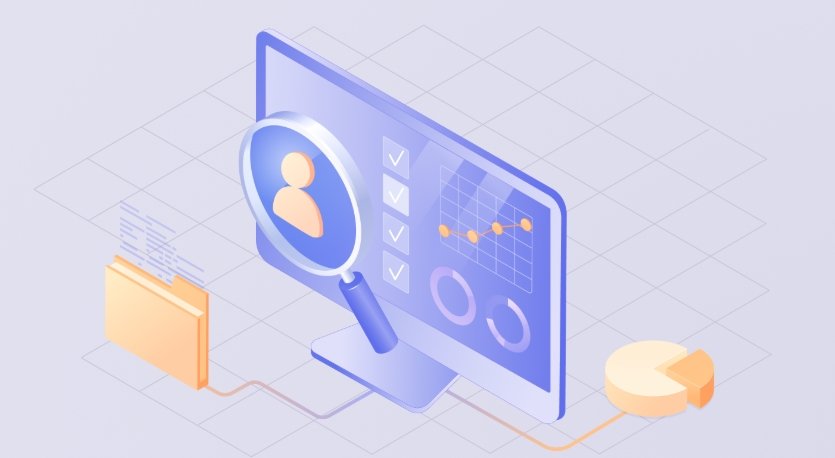In a quiet but sweeping shift, artificial intelligence is reshaping how job applicants are being judged — before a human ever sees their resume.
Across Fort Wayne and beyond, large companies are increasingly leaning on advanced AI screening models to make hiring decisions faster, cheaper, and in theory, fairer. But with that convenience comes a new wave of concern — not just over accuracy, but equity.
“It’s no longer about just keywords,” said Madeline Laurano, chief analyst at Aptitude Research. “We’re talking about inference, potential, and even learnability.”
From Keyword Filters to AI Inference
For years, most HR software has functioned more like a gatekeeper than a recruiter. Traditional applicant tracking systems (ATS) would scan resumes for specific terms — a mechanical search for the right combination of buzzwords.
“If you were applying to be a cardiologist,” Laurano said, “it would look for the word cardiologist. If you didn’t have that word, you were probably getting knocked out.”
But the newest generation of AI tools doesn’t just match words — it tries to interpret meaning.
Instead of filtering applicants based solely on past job titles or degrees, these models analyze sentence structures, infer skills from context, and even evaluate potential based on a person’s learning curve or adaptability.
Think of it as moving from “Does this person have X?” to “Could this person learn and do X well?”

What the AI Is Really Looking At
Here’s what the latest systems are trained to evaluate:
-
Implied skill sets, even if not explicitly listed
-
Language tone and writing style
-
Career progression and logical job transitions
-
Cross-domain experience that may signal flexibility
-
Resilience markers (such as gap explanations or comeback stories)
In essence, AI isn’t just sorting resumes anymore — it’s attempting to understand candidates.
“It’s a shift from reading resumes like robots to reading them more like humans — or at least, trying to,” Laurano explained.
Why Companies Are Embracing It
For recruiters managing hundreds or even thousands of applications per role, AI offers speed. But it also promises insight into candidates who might have been missed by older systems.
Hiring managers now want broader talent pipelines, particularly for roles where the “perfect resume” might not exist — or where traditional credentials have become unreliable predictors of success.
Some companies are using AI to:
-
Spot nontraditional candidates with transferable skills
-
Reduce the bias of human reviewers
-
Build more diverse teams by expanding talent horizons
When used well, Laurano says, it’s a win-win: “More inclusive hiring, better matches, and less recruiter burnout.”
But What About Bias?
Despite the optimism, experts warn that AI — like the humans who build it — is far from perfect.
“AI is manmade,” Laurano said. “So there is always the potential for the playing field to be unlevel.”
One major risk is amplifying existing inequalities. If a model is trained on biased historical data — say, resumes of people previously hired who happen to come from the same schools, regions, or demographics — it may favor those patterns again.
Other concerns include:
-
Opaque scoring systems: Candidates don’t always know why they were rejected.
-
Discrimination by proxy: Even without protected categories, AI can infer them.
-
Regulatory gray areas: Federal and state rules on AI in hiring remain patchy.
Some cities, like New York and Chicago, have already proposed laws requiring algorithm audits and disclosure notices when AI is used in hiring decisions.
The Job Seeker’s Perspective
For applicants, the experience of AI screening can feel alien — and sometimes unfair.
One Fort Wayne job hunter, who asked not to be named, described the process as “like applying into a black hole.”
“I spend hours customizing my resume,” they said. “But I don’t even know if a human being ever sees it.”
Still, others appreciate the shift — especially those with nonlinear career paths or those trying to pivot industries.
“If the AI can look past job titles and actually see who I am and what I can offer, then maybe I have a chance,” said a local bootcamp graduate trying to transition into tech.
The Future: Human + Machine?
Laurano believes the future of hiring will be a blend of AI and human touch, with AI handling the initial grunt work — sorting, ranking, surfacing — and human recruiters providing the empathy and intuition that machines still can’t replicate.
The key, she says, is transparency.
“Companies need to be upfront about how they’re using AI. Job seekers deserve to know what they’re being judged on.”
And until more rules are in place, she adds, ethical responsibility falls on employers and vendors to ensure fairness, accessibility, and accountability.
What You Can Do as a Job Seeker
If you’re navigating today’s AI-powered job market, here are a few tips:
-
Use natural language in your resume. Write like a human, not a buzzword generator.
-
Include context. Don’t just list job titles — explain what you did and learned.
-
Keep formatting simple. AI often struggles with fancy layouts or graphics.
-
Highlight adaptability and growth. These traits are increasingly valuable signals.
And remember — the goal is no longer to beat the bot, but to help it see your potential.












